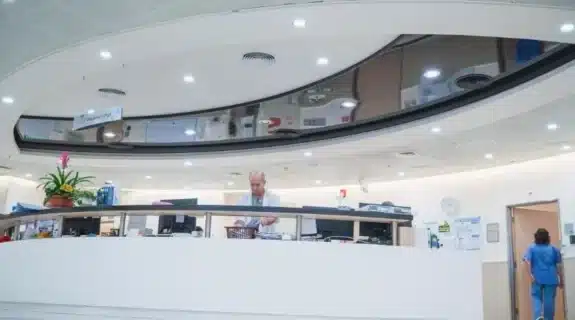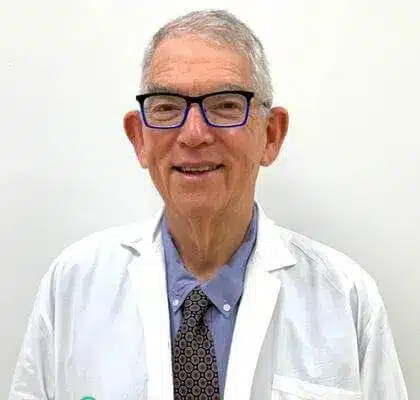
Before it all began, I was working as a data storage firmware engineer in my native India. I loved my career, and also enjoyed frequent hikes with friends on weekends.
My life was turned upside down when enlarged tonsils and swollen lymph nodes in my neck turned out to be more than just a bad throat infection. After a biopsy, I was diagnosed with non-Hodgkin’s lymphoma (NHL), a type of blood cancer.
I started my treatment back in India, where I received chemotherapy and radiation therapy. After doctors suggested I undergo a bone marrow transplant, and possibly an innovative treatment called CAR T-cell therapy, I decided, upon weighing the complications associated with allogeneic transplants and the unavailability of CAR T-cell therapy in India, to look for a hospital abroad.
Based on recommendations given by other patients and my online research, I zeroed in on Sheba Medical Center as the ideal choice for further treatment.
When my sister and I arrived at Sheba, the size of the hospital grounds and the language barrier overwhelmed us. However, we felt at ease once we met our medical coordinator – as everything was taken care of.
I was in remission when I arrived at Sheba, so the doctors decided to proceed with an autologous stem cell transplant. Since the transplant affects fertility, I underwent fertility preservation surgery before the autologous transplant. Even though the hospital stay was tough on my body, the post-discharge recovery was quick.
I put in a lot of effort to build myself back physically and mentally to try and lead a normal life, trying to keep my fears at bay, but unfortunately, a relapse occurred two months after the transplant, and the doctors recommended CAR T-cell therapy. I was thankful to receive this unique and innovative treatment.
I went into remission after the treatment, and my sister and I were planning to go back home to India. Unfortunately, while I was waiting in Israel for the second dose of the COVID-19 vaccine, I relapsed again – four months after the CAR T-cell therapy. At this point, I was utterly broken and considered giving up.
Eventually, I realized that even though receiving back-to-back treatments was extremely difficult, uncontrolled cancer would be even worse. Whenever I thought about it, I dreaded the day when I would be incapacitated by pain due to my own inaction.
This is why I decided to proceed with treatment. After a few unsuccessful therapies, I eventually underwent three cycles of a new five-drug targeted combination therapy called ViPOR, which helped me achieve remission.
In addition to ViPOR, my condition required an allogeneic stem cell transplant. While I was initially reluctant to put myself through another transplant, especially since it can cause infections and graft versus host disease (GVHD), I was reassured by the doctors at Sheba and by other patients who underwent the procedure and were doing well a few months down the line.
Now, six months after the allogeneic transplant, I am in remission and am feeling much better. This would have been impossible without the expertise and compassionate care of my physicians.

Arnon Nagler is an expert in the fight with non-Hodgkin’s lymphoma
I am grateful to Prof. Arnon Nagler, Dr. Abraham Avigdor, Dr. Ronit Yerushalmi, Dr. Dror Meirow, Prof. Hila Rannani, and the entire supporting team of nurses, as well as the rest of the medical staff. I am also grateful to the Global Patient Services team for providing guidance and support during my treatment at Sheba.
Sheba Medical Center is undoubtedly one of the best hospitals in the world when it comes to infrastructure, expertise, and patient care, but in my opinion, the hospital’s most valuable asset is the people working at Sheba with their never-give-up attitude. They hold the highest value for human life and do everything in their power to protect it, providing the best possible quality of life to their patients during treatment.
I would like to tell others, who may be in a similar situation as I was, that having a support system around you is extremely helpful, but ultimately, you must look inside yourself for courage, strength, and motivation. You should give yourself a chance at a better life, no matter how hard it may seem. You can’t let fear drive your decisions because the future is inherently uncertain.
Published on Sheba Global News